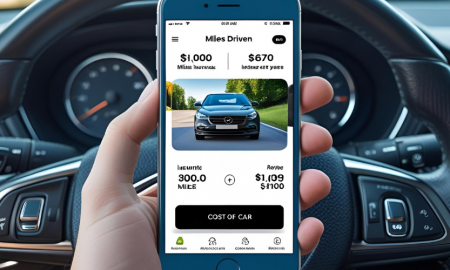
About 53% of Millennials Still Rely on their Parents to Foot their Bills

It’s no secret that millennials are facing a myriad of financial struggles. The latest data now shows that about half of Americans between the ages of 21 to 37 are dependent on parents, guardians or family members for their upkeep. This data was provided by Country Financial Security Index to show that most millennials begin the dependency age once they hit 21.
While this data is certainly surprising, some experts believe that this is optimal operation because things like insurance premiums and rent are now pricier compared to the period of their parents. The numbers get even more interesting when one considers that in 1960, the median rent was $588 while the current median US rent is $1,600. Other than just rent and expensive insurance premiums, millennials are also burdened with other increased expenses like college tuition and higher costs of purchasing homes.

On average, an estimated 37% of millennials receive funding on a monthly basis, with 59% others receiving money a number of times a year. The records show that most millennials use their funds for basic needs like groceries and gas, rent, cell phone purchase, and rent payments
Most analysts believe that by depending on their parents for survival further underscores the fact that millennials have found it hard to cope financially ever since the Great Recession. Figures from 2016 show that this particular group of individuals recorded wealth levels 34% below what they would likely have had were it not for the financial crisis. According to the Federal Reserve Bank of St. Louis, their current malaise is that they are likely to become the “lost generation”.
Challenges
Interestingly, a survey conducted shows that while millennials tend to feel like adults at an early age, 38% of them don’t believe they should have complete financial independence until they are about 25 years old, or later. This could help explain the current trend in most American homes, where 35% of individuals still live with their parents.
Doyle Williams, an executive vice president of Country Financial believes that all this should not necessarily be viewed in a negative light. He believes that with the right fiscal goals in place, millennials could use their time to set up an emergency fund, save up for a down payment and concentrate on future goals that will help them attain financial independence.
Emergent research now shows that parents worried about whether or not their children will ever grow up need not worry. This is because parental support during emerging adulthood does not necessarily translate into young adults being unable to transition to independence. Surprisingly, this close relationship could actually be beneficial to both kids and parents.

Despite the numerous challenges that millennials face together with an overreliance on their parents, about 9 in 10 Americans actively spend money on things they want but don’t need. At the same time, about 4 in 10 Millennials are tapping into their savings while 1 in 8 have decided to neglect their retirement plan
Okayed
Jeffrey Jensen Arnett, a research professor at Clark University in Massachusetts and director of the Clark Poll of Emerging Adults believes that this generation is admirable because they have managed to form a close bond with their parents. Arnett believes that this is no mean feat because it is the first time such a thing has been achieved. Arnett added that nowadays, parents no longer feel like they need to be some stern authority figure.
Experts believe that the pursuit of higher education, delayed marriages, and the sluggish economy are to blame for why millennials now live with their parents. Remarkably, this has had a ricochet effect on the number of millennials seeking to tie the knot. Karen Fingerman opines that about 25 percent of millennials will never marry, thus having a strong parental bond can be beneficial to their wellbeing.
More inDriving
-
`
The Automotive Reckoning Has Arrived – Are Companies Ready?
In early 2022, Stellantis CEO Carlos Tavares stood on stage in Amsterdam with a confident blueprint for the future. Fresh off...
September 5, 2025 -
`
Self-Driving Cars Will “Drastically” Change Automotive Design, GM Says
The automotive industry is entering a new chapter that goes far beyond electrification. While EVs dominate today’s headlines, the rise of...
August 29, 2025 -
`
Child Wearing Swimsuit Outside Sparks CPS Visit — The Full Story!
Children playing outside is a familiar and often joyful sight. Yet, sometimes, an innocent choice—like a child wearing a swimsuit outdoors—can...
August 22, 2025 -
`
Florida Auto Insurance Rates Finally Drop. But for How Long?
After years of rising premiums, Florida drivers are finally seeing lower auto insurance rates on the horizon. For 2025, the state’s...
August 15, 2025 -
`
U.S. Reduces Tariffs on Japanese Cars to 15% Under Trump’s Deal
In a move reshaping U.S.-Japan trade relations, former President Donald Trump confirmed a new agreement that slashes tariffs on Japanese car...
August 9, 2025 -
`
Adults in Ohio Face Stricter Rules to Obtain Driver’s License
Ohio has passed a new law that will change the way adults under 21 get their driver’s licenses. Signed into law...
July 31, 2025 -
`
Gen Z Craves Career Guidance, But Their Parents Are Struggling Too
Gen Z is stepping into the future with curiosity and ambition—but they’re not doing it alone. A growing number of teens...
July 25, 2025 -
`
Do Car Insurance Companies Offer Pay-As-You-Go Plans?
Car insurance premiums often feel unfair to people who rarely drive. Yet, most traditional auto policies still charge a fixed monthly...
July 17, 2025 -
`
Why the Koenigsegg Sadair Spear Is the Ultimate Hypercar Beast
Koenigsegg has revealed a new beast—the Sadair’s Spear. Tuning its focus on raw performance and brutal speed, this hypercar marks the...
July 11, 2025















You must be logged in to post a comment Login